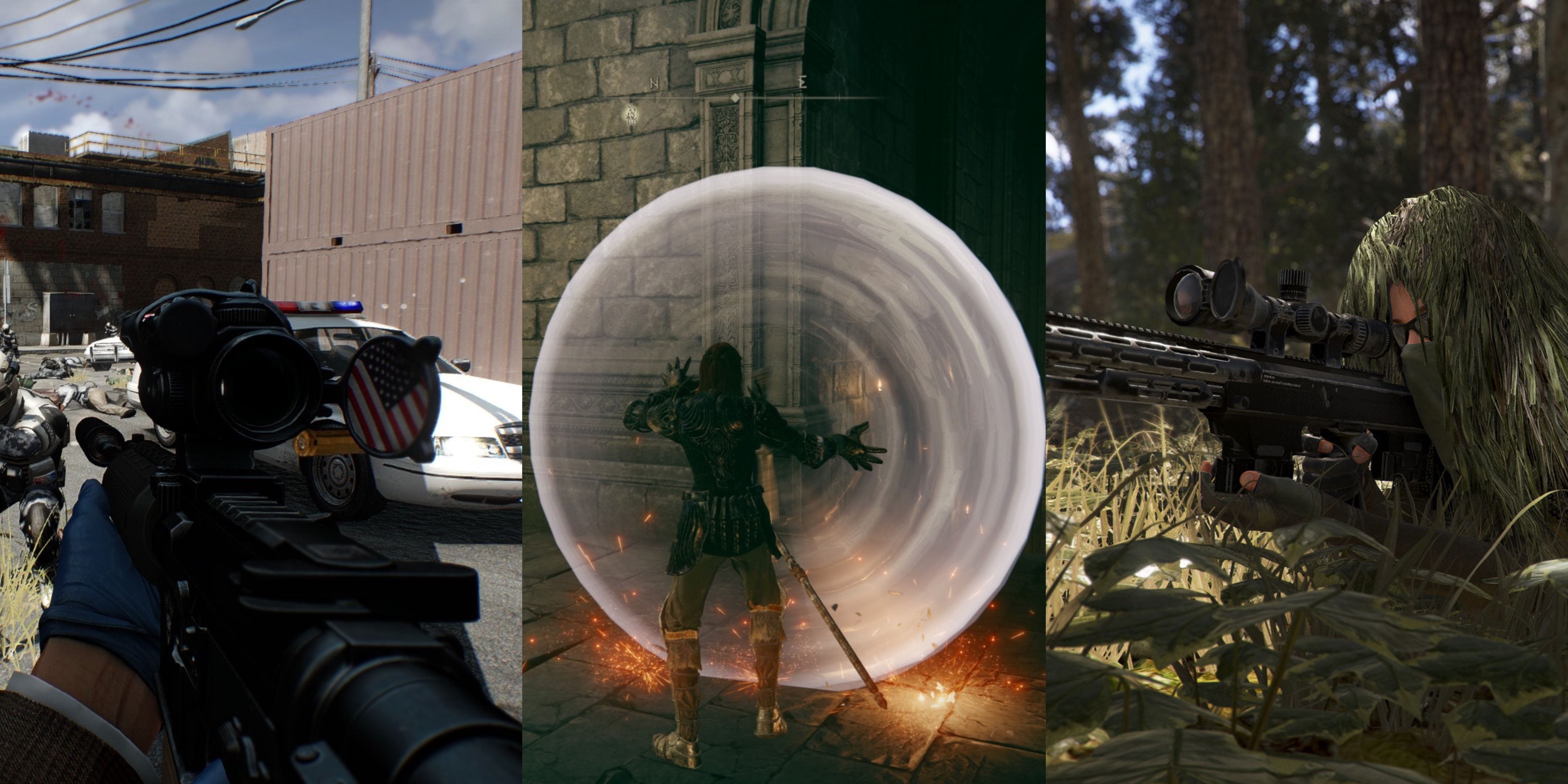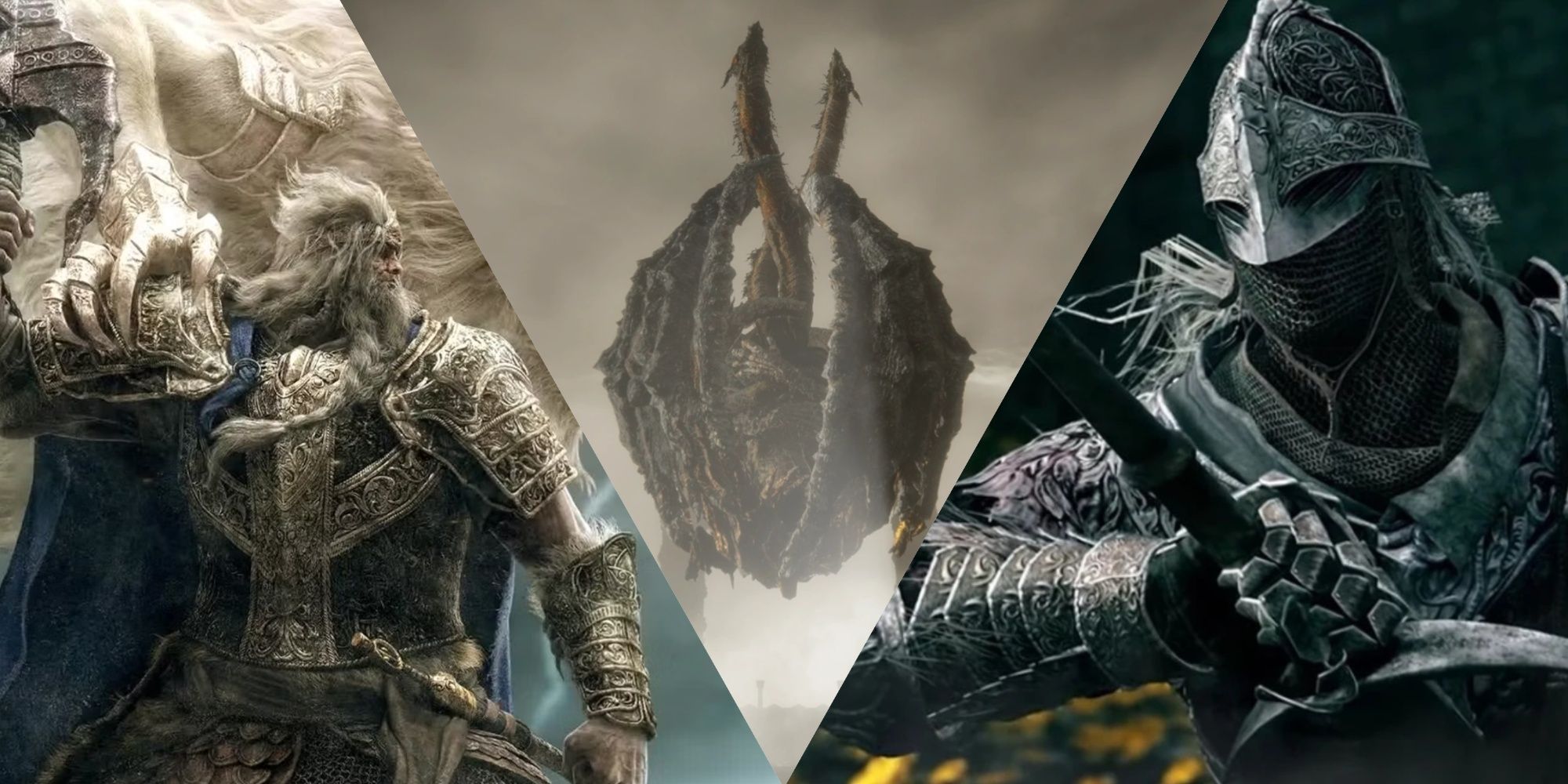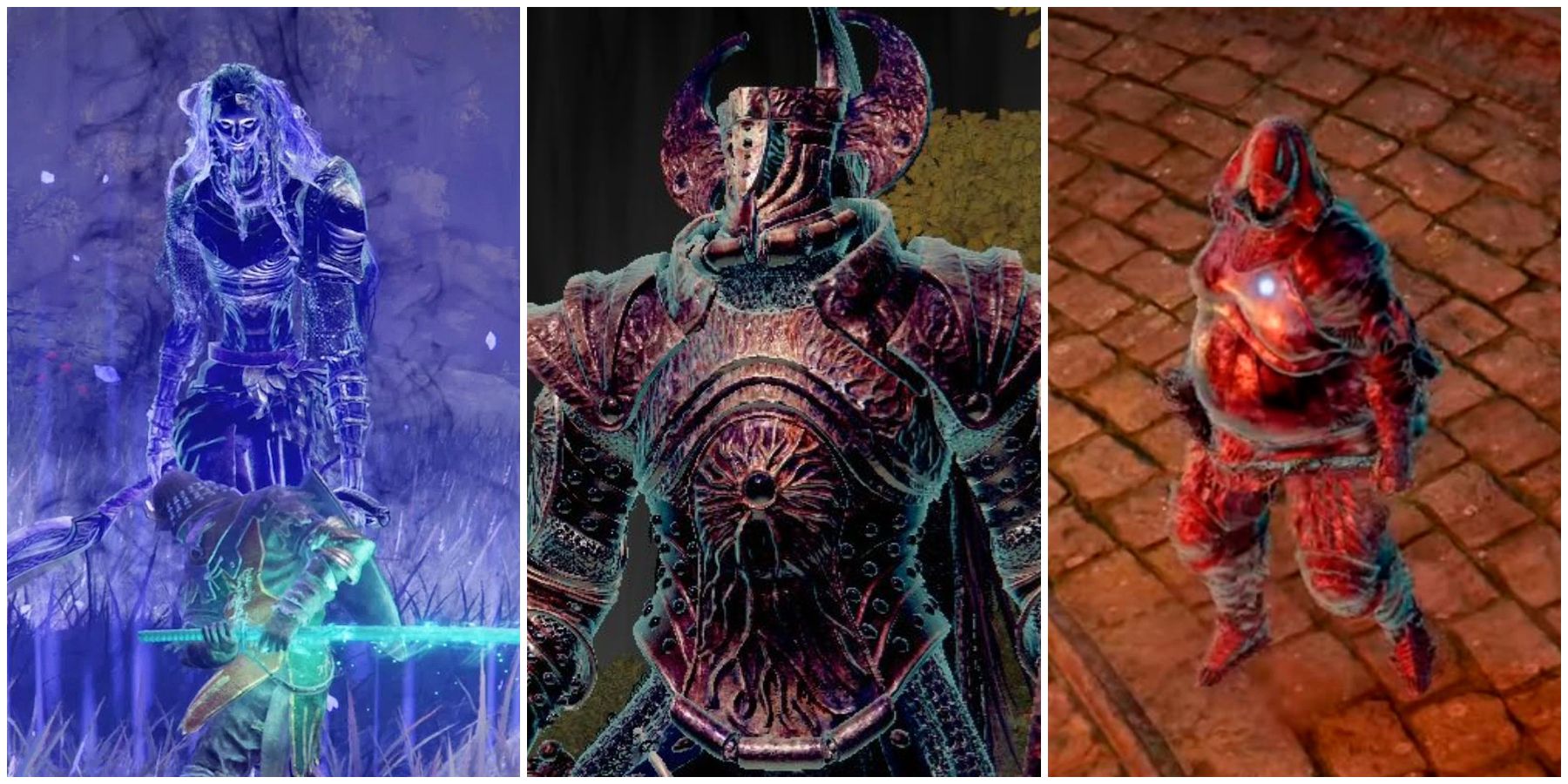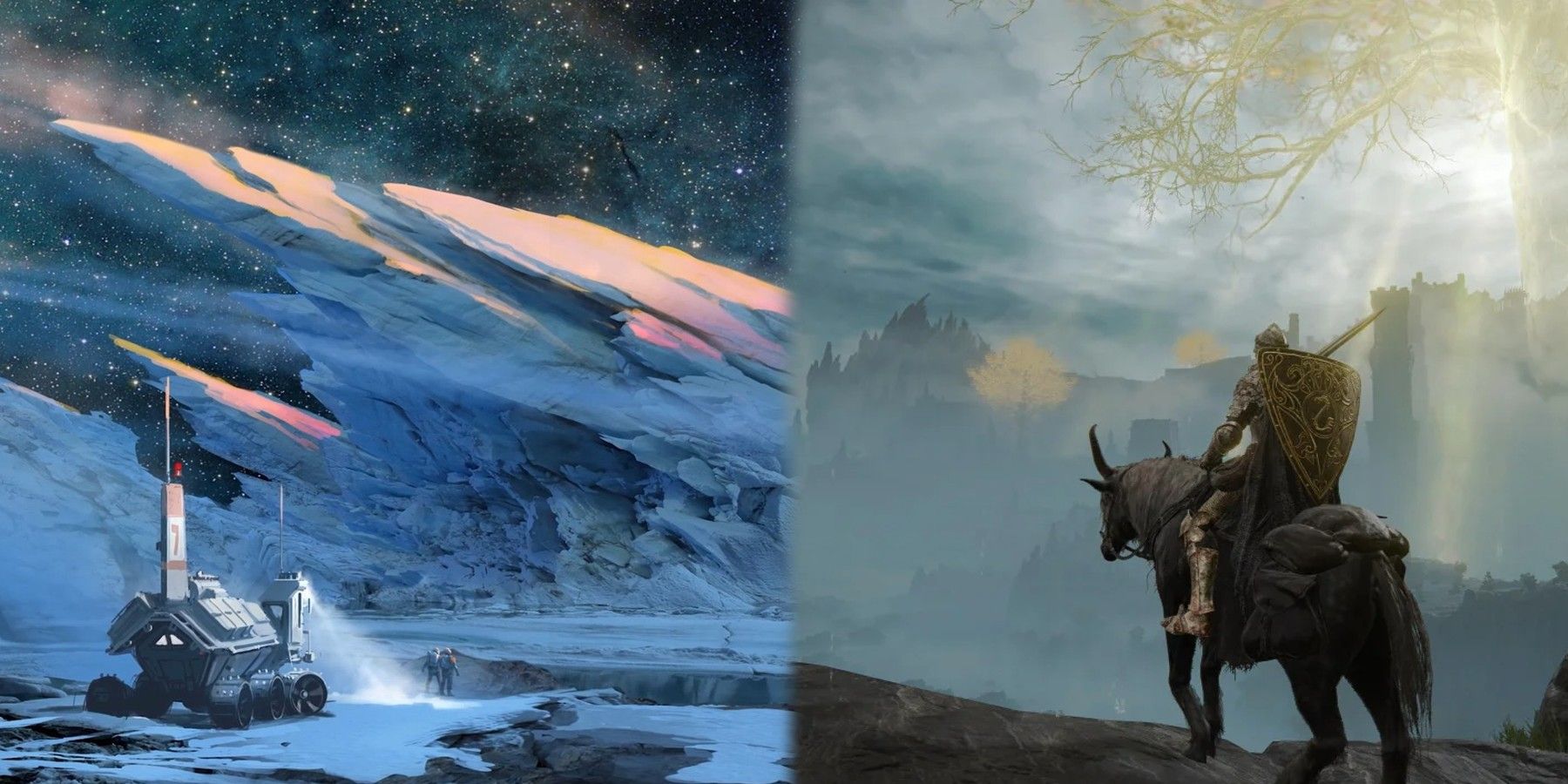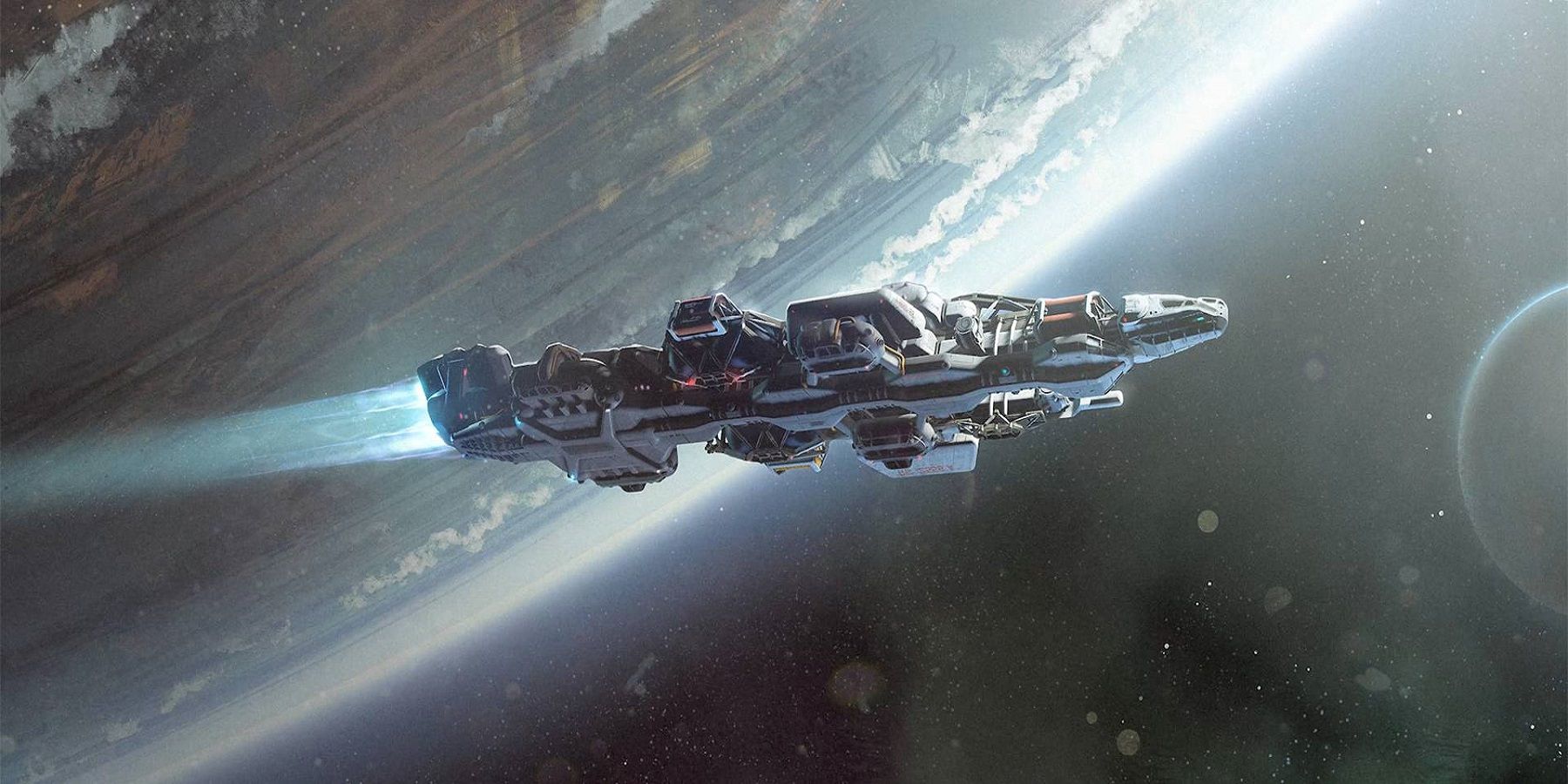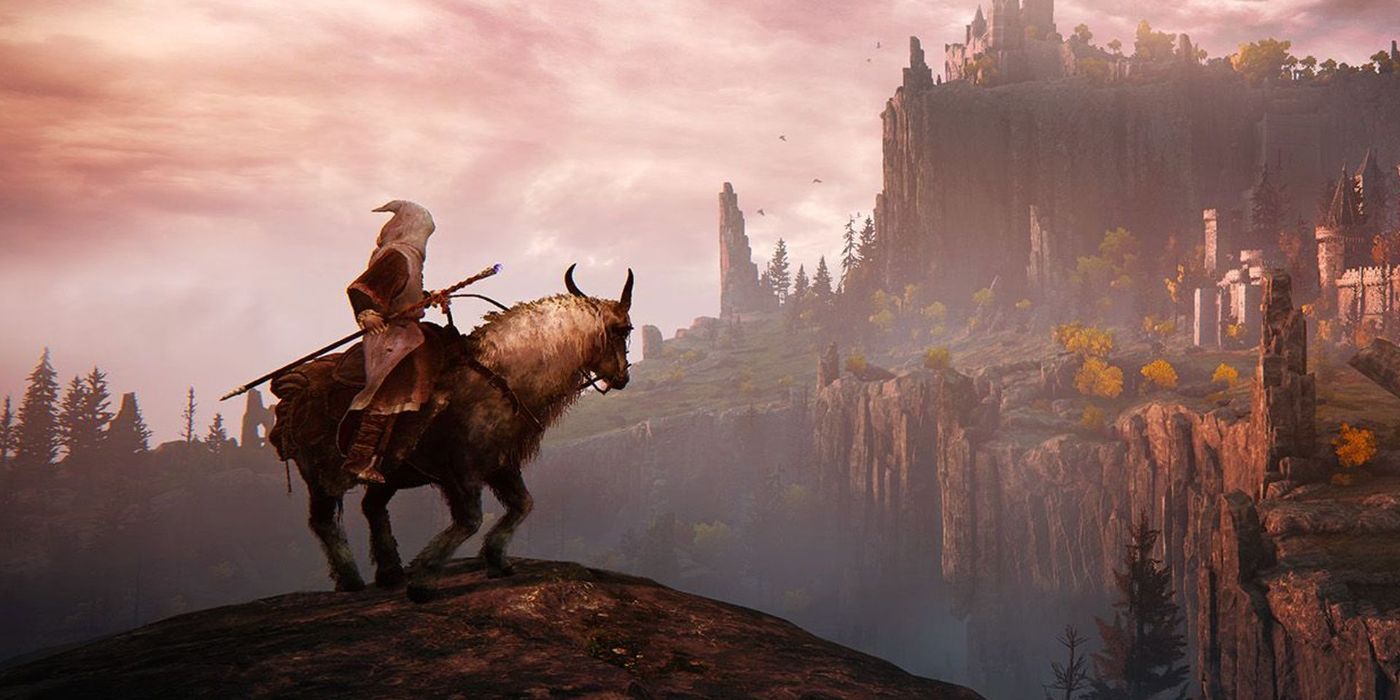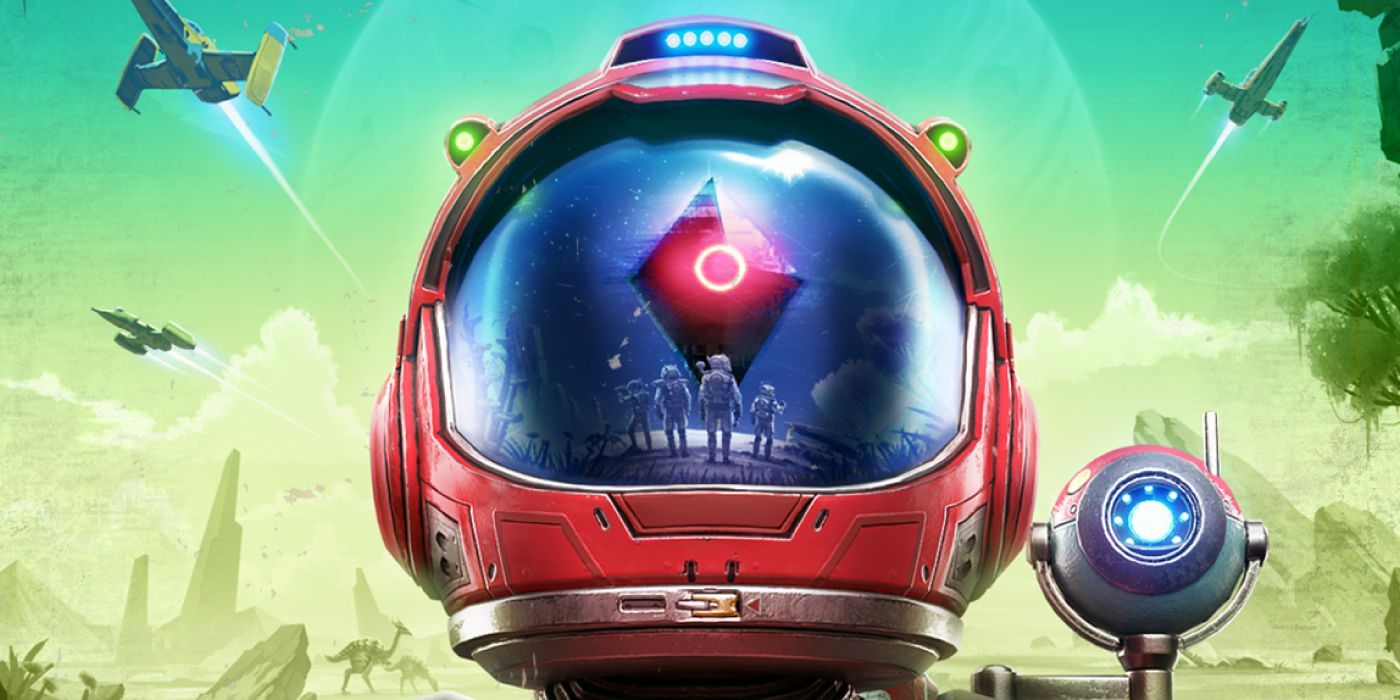At first glance, there might not appear to be much in common between FromSoftware's latest in a long line of challenging RPGs, Elden Ring, and Bethesda's yet-to-be-released space exploration game Starfield. The first has a fantasy setting with a story crafted with involvement from Game of Thrones author George R. R. Martin in collaboration with Dark Souls creator Hidetaka Miyazaki. The second is a sci-fi space-faring adventure set in the 24th century and is the first new IP from Bethesda in 25 years. While their settings, gameplay, and design aesthetics may be wildly different, both Starfield and Elden Ring have some similarities that link them in surprising ways.
Both games and their developers have been masters in trading in on fan excitement, as well as surrounding their releases with hype and anticipation. As brand-new IPs, players have very little to go on when it comes to speculating what the stories and worlds of each game might entail, and before Elden Ring and Starfield's releases, their respective studios really held all the cards. But this strategy can have its risks, as showing as little as possible before a game launches could mean gamers are in for a surprise – for better or worse.
Introducing A New IP
Creating something from scratch without the support of a franchise or established fanbase is always a gamble. That's why the video game and movie markets are flooded with sequels, spin-offs, and remakes. Fans need to look no further than the extremely lucrative and by this point ubiquitous Marvel and Star Wars franchises. It's far easier to go with a known entity than to branch off completely and release something that has no foundation to rest upon. With video games, their inevitably long development cycles mean that risks are even more perilous, as so much is invested in a title during the years before it makes its way into the hands of gamers.
It is not surprising, therefore, that Bethesda hasn't released an original IP in over two decades. Its two flagship series, Fallout and Elder Scrolls, have propped up the developer over the past few years with popular and well-received titles, with only a few exceptions like the problematic Fallout 76. FromSoftware has had much more success with its own original IPs over the years, from 2015's gothic horror Bloodborne to 2019's vengeful samurai yarn Sekiro: Shadows Die Twice. While many FromSoftware titles share similar aesthetics and mechanics, like its Dark Souls and Demon's Souls series, each game is unique and has its own in-depth and carefully thought-out lore.
Building Hype Before Release
Sometimes studios and developers aren't in control of the hype that surrounds a game before its release and can be victims of high expectations as much as its instigators. When a new game is announced by a prestigious or well-established developer, then fan excitement is fairly inevitable. This is particularly true if a developer has released a much-loved game or series of games in the past, as gamers hope for a repeat performance. Elden Ring had the joint advantage of being the product of famed fantasy author George R. R. Martin and the game design master Hidetaka Miyazaki, and it can be seen as a spiritual successor to popular previous series like Dark Souls.
Early glimpses and gradually released details indicated the game's vast and beautifully realized setting, the advancements in gameplay and graphics from the studio's previous titles, and Elden Ring's expansive new lore and interesting characters. Although developers remained fairly tight-lipped ahead of the game's launch, enough was revealed to offer gamers a taste of what was to come once Elden Ring was out in the wild and players were able to test out the game's notoriously challenging combat for themselves.
Starfield has been just as reluctant to give up its secrets. While Elden Ring has been released and received almost universal acclaim and rave reviews, Starfield is still a mystery. The few teases that developers have given gamers so far have detailed the NASA-punk aesthetic, the focus on exploration, and a little look at some of the hub worlds featured in the game. Despite not having much to go on, players are still excited about the upcoming sci-fi title, and many theories have sprung up around what features from other Bethesda games might crop up, as well as emulated aspects from similar games.
The Pressure On Highly Anticipated Games
Elden Ring's feverish levels of anticipation and hype that built up before the game's release haven't done much to harm it, as the general consensus is that the game has delivered on the high expectations (despite some slight technical issues). FromSoftware didn't reveal much about its newest title before it launched, letting excitement build as it teased small details and carefully controlled Elden Ring's marketing. Elden Ring may not be for everyone, but it appears to have navigated the tricky waters of pre-release life with relative ease.
Time will tell if Starfield will be able to achieve the same. Hopes are also high for this brand-new IP, not least from Xbox Boss Phil Spencer who wants Starfield to be one of Bethesda's most-played titles. Though these lofty expectations seem hard to meet, there's also a lot riding on the game's success after some disappointing recent releases from the studio. The developer has also gone down the route of revealing little and waiting for the game to speak for itself, but when there's this level of hype and barely anything to go on, it runs the risk of a wide chasm opening up between what fans expect and what the developers are able to deliver.
There are many infamous examples of where this gamble hasn't paid off. In the last few years alone, games like Cyberpunk 2077 crumbled under the pressure of their own hype and failed to deliver on fan expectations. Due to the pressure of a prompt release to capitalize on the high levels of anticipation, Cyberpunk 2077 launched as a buggy mess, alienating fans early on and souring its own legacy. Another memorable example is the ill-fated No Man's Sky – possibly one of the most anticipated titles prior to a game's release in recent years.
From what players came to expect from the game before it was even launched, it seemed impossible for No Man's Sky to be able to deliver, and this sadly proved to be the case. The studio has continued to support the game years after its release, providing extensive updates and new content for No Man's Sky that have completely transformed it. However, a game never gets a second chance at a first impression, and Starfield should be prepared to learn a lesson from its forerunners.
Starfield releases on November 11, 2022, for PC and Xbox Series X|S.

